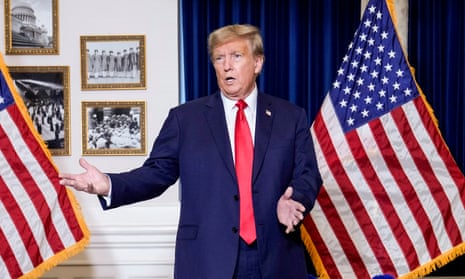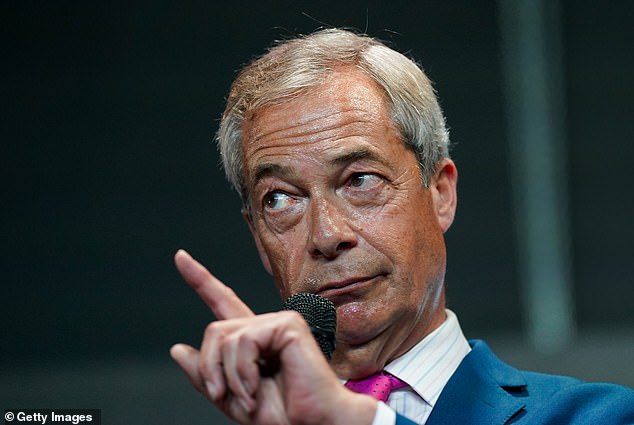Trump Claims Judicial Immunity For Tariff Decisions

Table of Contents
The Claim of Judicial Immunity
The core of the controversy lies in Trump's claim of judicial immunity shielding his tariff decisions from legal challenges. This claim hinges on the concept of presidential immunity, a legal principle that protects presidents from certain lawsuits while in office. However, the extent of this immunity is a subject of ongoing legal debate, especially concerning actions with demonstrably economic consequences like the imposition of tariffs.
-
The limitations of presidential immunity: While presidents enjoy certain protections from lawsuits related to their official duties, this immunity is not absolute. Historically, courts have established that immunity does not extend to actions that are clearly illegal or outside the scope of presidential authority. Trump's tariff decisions, argued opponents, fall into this category.
-
Conflict with judicial review: Trump's claim directly challenges the principle of judicial review, a cornerstone of American democracy. Judicial review allows the courts to assess the constitutionality of executive actions. Asserting immunity from such review undermines this critical check on presidential power.
-
Relevant legal precedents: The Supreme Court’s jurisprudence on presidential immunity is complex and nuanced. While cases like Nixon v. Fitzgerald (1982) established immunity for certain official acts, they also carved out exceptions. The application of these precedents to Trump's tariff decisions is highly contested.
-
Analysis of legal arguments: Legal scholars offer divergent opinions. Supporters of Trump's claim emphasize the broad scope of executive power in matters of foreign trade. Opponents contend that tariffs are subject to judicial review if they violate constitutional rights or existing laws. The absence of clear legal precedent directly applicable to this situation fuels the debate.
The Impact of Tariff Decisions on Businesses and Consumers
The economic consequences of Trump's tariffs were substantial and multifaceted, extending beyond mere import taxes. These trade policies created ripple effects throughout the economy:
-
Increased business costs: Businesses relying on imported goods faced significantly higher production costs, impacting their competitiveness and profitability. This was particularly true for small and medium-sized enterprises with limited capacity to absorb increased expenses.
-
Higher consumer prices: These increased costs were often passed on to consumers through higher prices for goods and services, contributing to inflation. This disproportionately affected low-income households with limited disposable income.
-
Negative effects on international trade relations: Trump's tariffs triggered retaliatory tariffs from other countries, escalating trade wars and disrupting global supply chains. This led to reduced export opportunities for American businesses and increased uncertainty in international markets.
-
Retaliatory tariffs: Countries targeted by Trump's tariffs responded with their own retaliatory measures, creating a cycle of escalating trade tensions that harmed both American and foreign economies.
Legal Challenges and the Role of the Courts
Trump's tariff decisions faced numerous legal challenges from various stakeholders, including businesses, industries, and individuals negatively impacted by the policies.
-
Specific lawsuits: Numerous lawsuits were filed against the Trump administration challenging the legality of specific tariffs, arguing that they violated international trade agreements, exceeded presidential authority, or infringed on constitutional rights.
-
Plaintiffs' arguments: Plaintiffs generally argued that the tariffs were arbitrary, capricious, and exceeded the scope of the president's authority under existing trade laws. They also highlighted the economic harm inflicted by these policies.
-
Potential legal outcomes: The outcomes of these legal challenges could significantly impact future trade policy and the balance of power between the executive and judicial branches. The Supreme Court's potential involvement is particularly crucial.
-
The role of the Courts: Courts at various levels played a pivotal role in reviewing the legality of Trump's tariff decisions. These legal battles involved complex issues of constitutional law, administrative law, and international trade law, highlighting the importance of judicial oversight.
The Broader Implications for Presidential Power
Trump's claim of judicial immunity carries significant implications for the balance of power within the American political system.
-
Erosion of checks and balances: Such a claim could erode the checks and balances built into the US Constitution, allowing the executive branch to act unchecked in areas traditionally subject to judicial review.
-
Implications for the rule of law: A precedent allowing presidents to avoid judicial review for significant policy decisions would undermine the rule of law and create a system where executive actions are not subject to legal scrutiny.
-
Long-term consequences: The acceptance of this type of claim would have long-lasting implications for presidential power, potentially shifting the balance of power toward the executive branch at the expense of the judicial branch and Congress.
Conclusion
Trump's claim of judicial immunity regarding his tariff decisions presents a complex legal and political challenge with significant implications. The potential erosion of checks and balances, the economic ramifications, and the uncertain legal precedents all contribute to the controversy's lasting impact. Understanding the legal arguments, economic consequences, and broader implications of Trump’s claims of judicial immunity concerning tariff decisions is crucial for every citizen. Further research into the ongoing legal challenges and their impact on trade policy and the American political system is strongly encouraged. Stay informed about these developments to better understand the future of executive authority and the rule of law in the United States.

Featured Posts
-
 Reform Spat Fallout Rupert Lowes Commitment To Great Yarmouth
May 02, 2025
Reform Spat Fallout Rupert Lowes Commitment To Great Yarmouth
May 02, 2025 -
 Ananya Pandays Pet Dog Riot Turns One A Bone Cake Birthday Bash
May 02, 2025
Ananya Pandays Pet Dog Riot Turns One A Bone Cake Birthday Bash
May 02, 2025 -
 Can England Win Euro 2025 3 Questions For Sarina Wiegman
May 02, 2025
Can England Win Euro 2025 3 Questions For Sarina Wiegman
May 02, 2025 -
 Death Of A Dallas Star The 80s Soap Opera Mourns
May 02, 2025
Death Of A Dallas Star The 80s Soap Opera Mourns
May 02, 2025 -
 Scotland Vs France Ramoss Key Role In Frances Six Nations Win
May 02, 2025
Scotland Vs France Ramoss Key Role In Frances Six Nations Win
May 02, 2025
